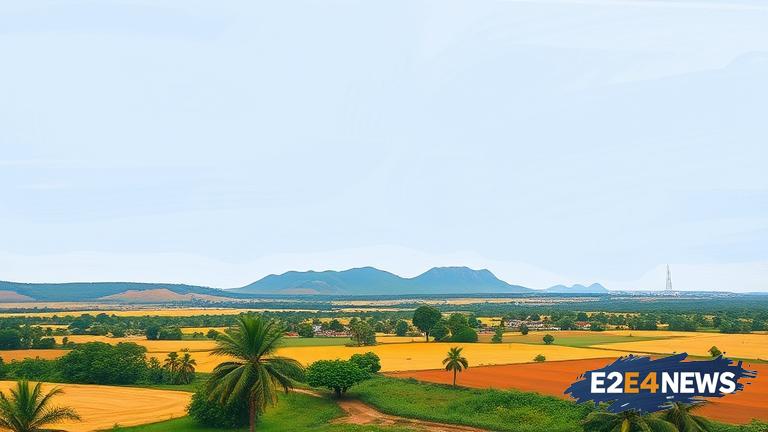Ghana, a country located in West Africa, has been experiencing significant economic growth in recent years. The country’s economy is driven by a diverse range of sectors, including agriculture, mining, manufacturing, and services. The government has implemented various policies and initiatives to promote economic development, such as the Ghana Beyond Aid strategy, which aims to reduce the country’s dependence on foreign aid. Additionally, the government has invested heavily in infrastructure development, including the construction of new roads, bridges, and ports. The country’s trade sector has also seen significant growth, with Ghana becoming a major exporter of goods such as gold, oil, and cocoa. The services sector, including finance, tourism, and telecommunications, has also experienced rapid growth. Furthermore, Ghana has become a hub for entrepreneurship and innovation, with many startups and small businesses emerging in recent years. The country has also seen significant investment in the technology sector, with many international companies setting up operations in Ghana. The government has also implemented policies to promote foreign investment, such as the Ghana Investment Promotion Centre, which provides incentives and support to investors. Despite the many positive developments, Ghana’s economy still faces challenges, including a large trade deficit and a significant debt burden. However, the government is working to address these challenges through policies such as the Fiscal Responsibility Act, which aims to reduce the country’s fiscal deficit. The country’s economic growth has also had a positive impact on the lives of Ghanaians, with many people experiencing improvements in their standard of living. The government has also implemented policies to promote social welfare, such as the Free Senior High School policy, which provides free education to all senior high school students. Ghana’s economy is also closely tied to the global economy, with the country being a member of the African Continental Free Trade Area (AfCFTA) and the Economic Community of West African States (ECOWAS). The country’s economic growth has also been driven by the growth of the middle class, with many Ghanaians experiencing increases in their disposable income. The government has also implemented policies to promote economic inclusion, such as the National Entrepreneurship and Innovation Plan, which aims to support entrepreneurship and innovation among young people and women. Overall, Ghana’s economy is experiencing significant growth and development, driven by a range of factors, including government policies, investment, and innovation. The country’s economic future looks bright, with many opportunities for growth and development in the years to come. Ghana’s economic growth has also been recognized internationally, with the country being named as one of the fastest-growing economies in Africa by the International Monetary Fund (IMF). The country’s economic development has also been driven by the growth of the private sector, with many Ghanaian businesses experiencing significant growth and expansion in recent years. The government has also implemented policies to promote public-private partnerships, such as the Public-Private Partnership Act, which aims to support collaboration between the public and private sectors. In conclusion, Ghana’s economic landscape is complex and multifaceted, with many opportunities and challenges. However, with the right policies and investments, the country has the potential to achieve significant economic growth and development in the years to come.
